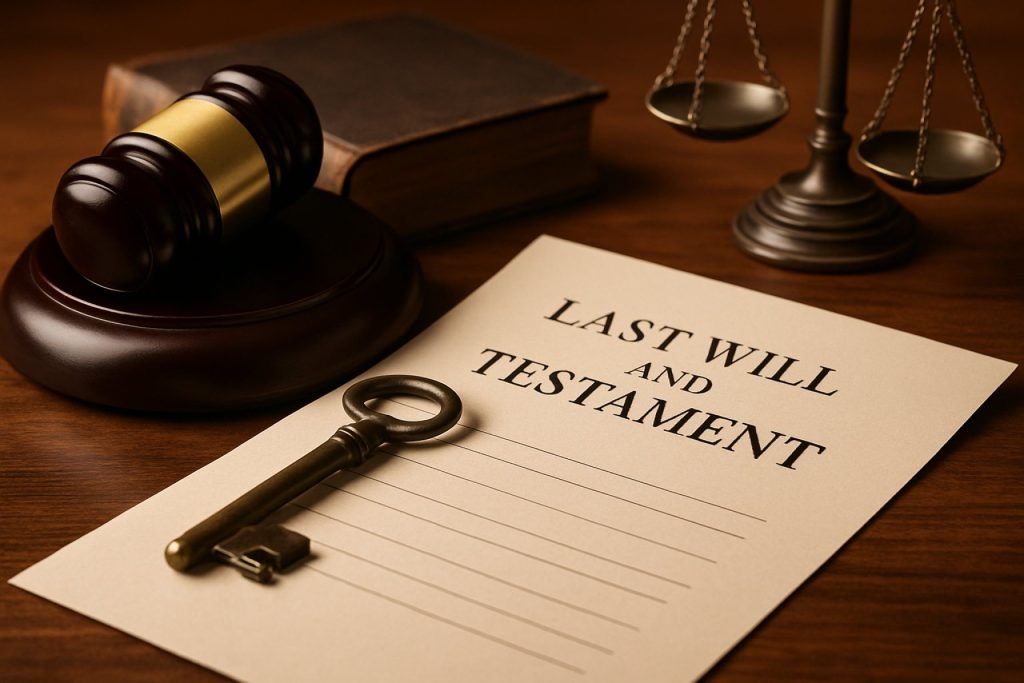
Decedent Estates Demystified: Your Essential Guide to Inheritance, Probate, and Asset Distribution. Discover the Critical Steps and Pitfalls in Managing a Loved One’s Estate.
- Understanding Decedent Estates: Definitions and Key Concepts
- The Probate Process: Step-by-Step Overview
- Identifying and Valuing Estate Assets
- Executor Duties and Legal Responsibilities
- Heirs, Beneficiaries, and Inheritance Rights
- Common Challenges and Disputes in Decedent Estates
- Tax Implications and Financial Considerations
- Avoiding Probate: Trusts and Alternative Strategies
- Frequently Asked Questions About Decedent Estates
- Sources & References
Understanding Decedent Estates: Definitions and Key Concepts
A decedent estate refers to the totality of a person’s assets, rights, and obligations left behind upon their death. The process of managing and distributing these assets is governed by a complex framework of laws and procedures designed to ensure the orderly transfer of property, settlement of debts, and fulfillment of the decedent’s wishes as expressed in a will or, in the absence of a will, according to statutory rules of intestacy. Key concepts in decedent estates include the identification of heirs and beneficiaries, the appointment of a personal representative (executor or administrator), and the classification of assets as either probate or non-probate property.
Probate property consists of assets that pass through the court-supervised probate process, such as individually owned real estate or personal property. Non-probate assets, like life insurance proceeds with named beneficiaries or jointly held property with rights of survivorship, transfer automatically outside of probate. The personal representative is responsible for collecting and valuing estate assets, paying valid debts and taxes, and distributing the remainder to rightful heirs or beneficiaries. The process is subject to oversight by the probate court, which ensures compliance with statutory requirements and resolves disputes among interested parties.
Understanding these foundational concepts is essential for anyone involved in estate planning or administration. For further details on the legal framework and procedures governing decedent estates, refer to resources provided by the United States Courts and the Internal Revenue Service.
The Probate Process: Step-by-Step Overview
The probate process is a court-supervised procedure for administering a decedent’s estate, ensuring the proper distribution of assets and payment of debts. The process typically begins with the filing of a petition for probate in the appropriate court, usually in the jurisdiction where the decedent resided. The court then appoints a personal representative (executor or administrator) to manage the estate. This individual is responsible for gathering and inventorying the decedent’s assets, notifying creditors and beneficiaries, and paying valid debts and taxes.
Once debts and taxes are settled, the personal representative prepares a final accounting and submits it to the court for approval. Upon approval, the remaining assets are distributed to the beneficiaries according to the decedent’s will or, if there is no will, in accordance with state intestacy laws. The probate process can vary in complexity and duration depending on the size of the estate, the clarity of the decedent’s wishes, and whether disputes arise among heirs or creditors. Some jurisdictions offer simplified or expedited procedures for small estates, which can reduce the time and cost involved.
Throughout the process, the court provides oversight to ensure that the personal representative fulfills their fiduciary duties and that the decedent’s wishes, as expressed in their will, are honored. For more detailed information on the probate process, refer to resources provided by the United States Courts and state-specific guidelines, such as those from the Judicial Branch of California.
Identifying and Valuing Estate Assets
Identifying and valuing estate assets is a critical step in the administration of decedent estates. The process begins with a comprehensive inventory of all assets owned by the decedent at the time of death. These assets may include real property, personal property, financial accounts, business interests, retirement accounts, and intangible assets such as intellectual property. Executors or personal representatives are legally obligated to locate, secure, and document each asset, often requiring access to financial records, property deeds, and safe deposit boxes.
Once identified, each asset must be accurately valued as of the date of death. Valuation methods vary depending on the asset type. Real estate typically requires a professional appraisal, while publicly traded securities are valued based on market prices on the date of death. Personal property, such as jewelry or artwork, may also necessitate expert appraisals. For closely held businesses or unique assets, specialized valuation experts may be engaged to determine fair market value. Accurate valuation is essential for several reasons: it determines estate tax liability, guides the equitable distribution of assets among beneficiaries, and ensures compliance with legal and fiduciary duties.
The inventory and valuation process must be documented and reported to the probate court, often through a formal inventory filing. Failure to properly identify or value assets can result in legal disputes, tax penalties, or breaches of fiduciary duty. Executors are encouraged to consult official guidance, such as that provided by the Internal Revenue Service and local probate courts, to ensure compliance with all legal requirements and best practices.
Executor Duties and Legal Responsibilities
The executor of a decedent estate holds a fiduciary position, tasked with managing the estate in accordance with the decedent’s will and applicable state laws. Their primary duties include identifying and securing estate assets, notifying beneficiaries and creditors, paying valid debts and taxes, and distributing the remaining assets to rightful heirs. Executors must act in the best interests of the estate and its beneficiaries, maintaining impartiality and avoiding conflicts of interest. They are required to keep detailed records of all transactions and may need to provide periodic accountings to the probate court and interested parties.
Legal responsibilities also encompass filing the decedent’s final income tax returns and, if necessary, estate tax returns. Executors must adhere to strict timelines for these filings and for providing notice to creditors, as failure to do so can result in personal liability. In some jurisdictions, executors may be required to post a bond to protect the estate from potential mismanagement. If disputes arise among beneficiaries or with creditors, the executor is responsible for representing the estate’s interests in court proceedings.
Given the complexity and potential legal exposure, executors are encouraged to seek guidance from legal and financial professionals. State-specific statutes and probate rules govern the scope of executor authority and obligations, and these can vary significantly. For more detailed information, refer to resources provided by the United States Courts and your state’s probate court system, such as the New York State Unified Court System.
Heirs, Beneficiaries, and Inheritance Rights
In the administration of decedent estates, the identification and rights of heirs and beneficiaries are central to the distribution of assets. Heirs are individuals who are entitled by law to inherit from a decedent who dies intestate (without a valid will), typically including spouses, children, and sometimes more distant relatives, depending on the jurisdiction’s statutes of descent and distribution. Beneficiaries, on the other hand, are those specifically named in a decedent’s will or trust to receive particular assets or portions of the estate. The distinction is crucial: while all heirs may be beneficiaries if named in a will, not all beneficiaries are necessarily heirs under intestacy laws.
Inheritance rights are governed by both statutory law and the decedent’s testamentary documents. In cases where a valid will exists, the decedent’s wishes generally prevail, subject to certain legal protections for spouses and, in some jurisdictions, children. For example, many states provide for an “elective share” or “forced share” that prevents a surviving spouse from being completely disinherited, regardless of the will’s terms. In the absence of a will, intestacy statutes dictate the order and proportion of inheritance, often prioritizing spouses and descendants, then ascending to parents, siblings, and more remote kin as necessary. Disputes may arise over the validity of a will, the identification of rightful heirs, or the interpretation of ambiguous bequests, often requiring judicial intervention.
For further details on inheritance rights and the legal framework governing heirs and beneficiaries, consult resources provided by the United States Courts and the American Bar Association.
Common Challenges and Disputes in Decedent Estates
Decedent estates often become the subject of various challenges and disputes, which can significantly delay the administration process and deplete estate assets. One of the most common disputes arises over the validity of the decedent’s will. Heirs or potential beneficiaries may contest a will on grounds such as undue influence, lack of testamentary capacity, or improper execution. These contests can lead to protracted litigation, requiring courts to examine evidence and sometimes invalidate the will entirely, resulting in the estate being distributed according to intestacy laws instead United States Courts.
Another frequent challenge involves the identification and valuation of estate assets. Disputes may arise if beneficiaries believe that the executor has failed to locate all assets or has undervalued certain property, impacting their share of the inheritance. Additionally, creditors may file claims against the estate, leading to disagreements over the legitimacy or priority of these debts. Executors must carefully review and, if necessary, contest questionable claims to protect the estate’s interests Internal Revenue Service.
Family dynamics often exacerbate disputes, especially in blended families or where there are ambiguities in the will. Allegations of favoritism, unequal treatment, or broken promises can fuel litigation. To mitigate these challenges, clear estate planning, transparent communication, and the appointment of a neutral executor are recommended. Courts may also appoint mediators to facilitate resolution and preserve family relationships American Bar Association.
Tax Implications and Financial Considerations
The administration of decedent estates carries significant tax implications and financial considerations for both the estate and its beneficiaries. Upon a person’s death, their estate may be subject to federal and, in some cases, state estate taxes, depending on the total value of the assets. The federal estate tax applies only if the estate’s value exceeds the exemption threshold, which is periodically adjusted for inflation. For 2024, the federal exemption is $13.61 million per individual, meaning estates valued below this amount are not subject to federal estate tax (Internal Revenue Service).
In addition to estate taxes, the estate may also be responsible for filing a final income tax return for the decedent, as well as an income tax return for the estate itself if it generates income during the administration period. Beneficiaries should be aware that certain inherited assets, such as retirement accounts, may trigger income tax liabilities upon distribution. However, most inherited property receives a “step-up” in basis to its fair market value at the date of death, potentially reducing capital gains taxes if the asset is later sold (Internal Revenue Service).
State-level taxes can further complicate the financial landscape, as some states impose their own estate or inheritance taxes with lower exemption thresholds. Executors and beneficiaries should consult with tax professionals to ensure compliance and to optimize tax outcomes. Proper planning and timely filing of required tax documents are essential to avoid penalties and maximize the value passed on to heirs.
Avoiding Probate: Trusts and Alternative Strategies
Avoiding probate is a primary concern for many individuals engaged in estate planning, as the probate process can be time-consuming, costly, and public. One of the most effective strategies to bypass probate is the use of trusts, particularly revocable living trusts. By transferring assets into a trust during their lifetime, a decedent ensures that those assets are managed and distributed by a trustee according to the terms of the trust, without the need for court intervention. This not only expedites the transfer of property but also maintains privacy, as trust documents generally do not become part of the public record, unlike wills probated in court (American Bar Association).
In addition to trusts, several alternative strategies can help avoid probate. Joint ownership with rights of survivorship allows property to pass automatically to the surviving owner upon death. Payable-on-death (POD) and transfer-on-death (TOD) designations for bank accounts, securities, and even real estate in some jurisdictions, enable assets to transfer directly to named beneficiaries outside of probate. Life insurance policies and retirement accounts with designated beneficiaries also bypass the probate process (Consumer Financial Protection Bureau).
While these strategies can be highly effective, they require careful planning and regular updates to ensure that beneficiary designations and ownership structures reflect the decedent’s current wishes. Consulting with an estate planning attorney is recommended to tailor these tools to individual circumstances and to avoid unintended consequences, such as disinheriting loved ones or triggering unnecessary taxes (Nolo).
Frequently Asked Questions About Decedent Estates
Decedent estates often raise numerous questions for heirs, executors, and interested parties. Below are answers to some frequently asked questions about decedent estates:
- What is the role of an executor? The executor is responsible for managing the decedent’s estate, including gathering assets, paying debts and taxes, and distributing property according to the will or state law. The executor is appointed by the court if there is no will. For more details, see the United States Courts.
- What happens if there is no will? If a person dies intestate (without a will), state intestacy laws determine how the estate is distributed. Typically, assets go to the closest relatives, such as spouses, children, or parents. Each state’s rules may differ; consult your state’s probate court for specifics, such as the New York State Unified Court System.
- Are all assets subject to probate? No. Some assets, like life insurance policies with named beneficiaries, jointly owned property, and retirement accounts, usually pass outside of probate. For more information, refer to the Internal Revenue Service.
- How long does the probate process take? The duration varies depending on the estate’s complexity and state laws. Simple estates may close in a few months, while complicated ones can take years. See the American Bar Association for guidance.
Sources & References
- United States Courts
- Internal Revenue Service
- Judicial Branch of California
- Consumer Financial Protection Bureau
- Nolo



